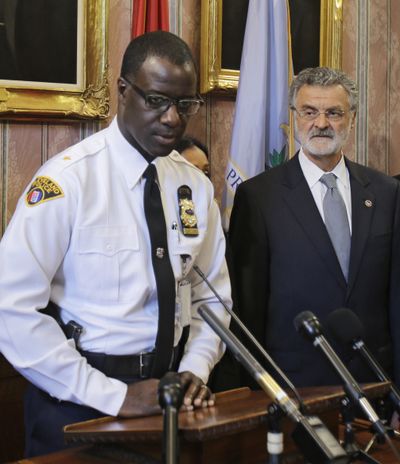Cleveland, Justice Department announce police settlement

CLEVELAND – Cleveland agreed to sweeping changes in how its police officers use force, treat the community and deal with the mentally ill, under a settlement announced Tuesday with the federal government that will put the 1,500-member department under an independent monitor.
The settlement was made public three days after a white Cleveland patrolman was acquitted of manslaughter for his role in a 137-shot barrage of police gunfire that left two unarmed black suspects dead in a car in 2012.
Mayor Frank Jackson said the ambitious plan that was worked out over five months of negotiations with the U.S. Justice Department will be expensive and will take years to put in place. But he said he sees it as a chance to set an example for other cities.
The proposed reforms come amid tension around the U.S. over a string of cases in which blacks died at the hands of police.
“As we move forward, it is my strong belief that as other cities across this country address and look at their police issues in their communities, they will be able to say, ‘Let’s look at Cleveland because Cleveland has done it right,’ ” Jackson said.
In December, after an 18-month investigation prompted in part by the 2012 shooting, the Justice Department issued a scathing report accusing Cleveland police of a pattern of excessive force and other abuses.
The settlement is an expansive list of items aimed at easing tensions between the police and the city’s residents, especially in the black community. Cleveland is 53 percent black. About two-thirds of its police officers are white. The mayor and the police chief are black.
The reforms were outlined in a 105-page consent decree filed in federal court. It calls for new guidelines and training in the use of force; a switch to community policing, in which officers work closely with their neighborhoods; an overhaul of the machinery for investigating misconduct allegations; modernization of police computer technology; and new training in avoiding racial stereotyping and dealing with the mentally ill.
An independent monitor approved by the court will oversee the police force’s compliance. Several other police departments around the country, including those in Seattle and New Orleans, are operating under federal consent decrees that involve independent oversight.